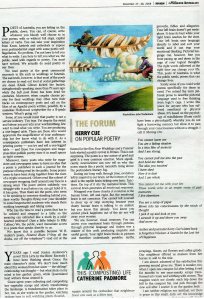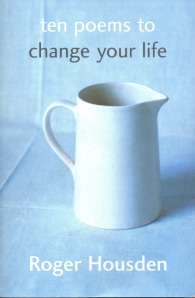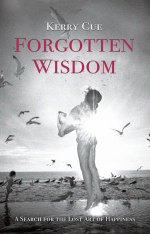On Popular Poetry by Kerry Cue Review The Weekend Australian 27th Dec 2008
Poets of Australia you are letting us, the general public, down. You can, of course, write whatever you bloody well choose to write in your poems with or without full stops, capital letters or verbs. You can take your inspiration from Keats, kestrels and cathedrals or expose your post-modernist angst with some poetic self-flagellation. No problem. I’m not here to tell you what to write. I am here to tell you what we, the general public, need with regards to poetry. You must have noticed. We actually do need poetry in our lives.
We read poetry at the great ceremonial moments in life such as weddings or funerals. The sad truth, however, is that most of the poets we choose to read out loud at social gatherings are dead. Khalil Gibran kicked the bucket, metaphorically speaking, over 75 years ago; while the Sufi poet Rumi has been dead for centuries. Moreover, when couples choose poetry for their weddings they often turn their backs on contemporary poets and call on the likes of an Apache Poem written, possibly, by a nameless Hollywood script writer for a B-grade Western. What’s going on?
Some of you would insist that poetry is not a service industry. Too true. Yet despite the sweat and labour you put into your word-smithing few want to read what you write. You are producing a one-legged table. There are those who would appreciate the magnificence of your craftsmanship but few know what to do with it. As a consequence publishers have lost interest in printing poetry – You try and sell a one-legged table- and those few newspapers and magazines that publish poetry stow it in small spaces in tight corners.
Moreover, many poets who write for magazines and newspapers seem to have no idea that a poem is published in such a journal for the purposes of being read by the general public. Some poems seem to have been slung together from the clues from the cryptic crossword. Others read like a sheet of newspaper wrapping itself around your face in a strong wind. The poem arrives suddenly, you struggle with it and before you can get hold of it, it‘s gone. Then there are the poets, who seem to be speaking to someone standing behind you, their worthy thoughts flying over your shoulder to some bespectacled academic who stands there nodding knowingly and taking notes. Who has the time to read a poem that has to be sedated and strapped to a table so the meaning can extracted like a tooth by a cold-hearted professor? (Just a little tribute to Billy Collins.) We, the general public, want immediate access to a poem that speaks directly to us.
We know this is possible because Auden’s poem ‘Stop all the clocks, Cut off the Telephone’ read at the funeral in the film ‘Four Weddings and a Funeral’ kick-started a poetry revival in the UK. This is not surprising. The poem is a raw outcry of grief and grief is a very common emotion. More significantly, neuroscience can now tell us why this poem stands like a poetic monolith rising above the post-modern literary fog. During our long walk through time evolution left its imprint in our brain. At the bottom of your skull is your reptile brain ticking-over basic functions. On top of it sits your mammal brain. This survival brain generates all emotional responses. Wrapped over these chunks of evolution is the human brain, Left and Right. But your emotional brain is not conscious. You cannot tell yourself to ‘cheer up’ or ‘stop worrying’ because your chatty human brain is talking to ‘an animal’ but you know this already. You know you cannot pluck happiness out of the air nor will away your worries.
We are, however, visual creatures. You can access your emotional brain through pictures, through pictorial language and Auden was a master of this craft producing exquisite and useful goods. Your Right brain thinks in pictures and therefore understands parables, myths, proverbs, fables and allegories. These tales often reflect a complex duality. The Hare and the Tortoise, ‘Don’t cry over spilt milk’, the Greek myth of the youth Narcissus falling in love with his own reflection in a stream are a part of the inherited wisdom of this side of our consciousness that stretches back through the vast shadow of history to long ago, when human thought was simply a handprint on a cave wall.
Your Left brain doesn’t get metaphors. It ‘does its best’ while your Right brain ‘reaches for the stars’. Your Left brain uses language directly to label and sort your world and it can trap your emotional thinking. Pictorial language can, however, free you from pacing, up and down, in the cage of your own logical thoughts. The right words delivered at the right time can change your life. This, poets of Australia, is what we the general public need, poems that can change lives.
Surely some of you could write poems specifically for those in need. I’ve coined the phrase Jailbreak Prose to describe pictorial language used to free thinking from logics cage. I wrote this piece for anyone who has suffered emotional or physical abuse. It’s based on the psychology of mindfulness (Rumi could have been a psychologist!) whereby you do not fight a harrowing memory but allow it to pass through your consciousness without a struggle. I call it:
Moving On.
You cannot harm me
You are a fading shadow
In a thin film of memory
And I am strong.
You cannot pull me into the past
And hold me there
The skin you touched
I have shed
Now it is dust
And I am whole
You cannot cut me with your lies
These words echo in an empty room of past memories
I live elsewhere
You are a scrap of paper
Blown into my consciousness by the winds of thought
I pick it up and look at you
I scrunch it up and throw you away
And move on.
Read Full Post »



